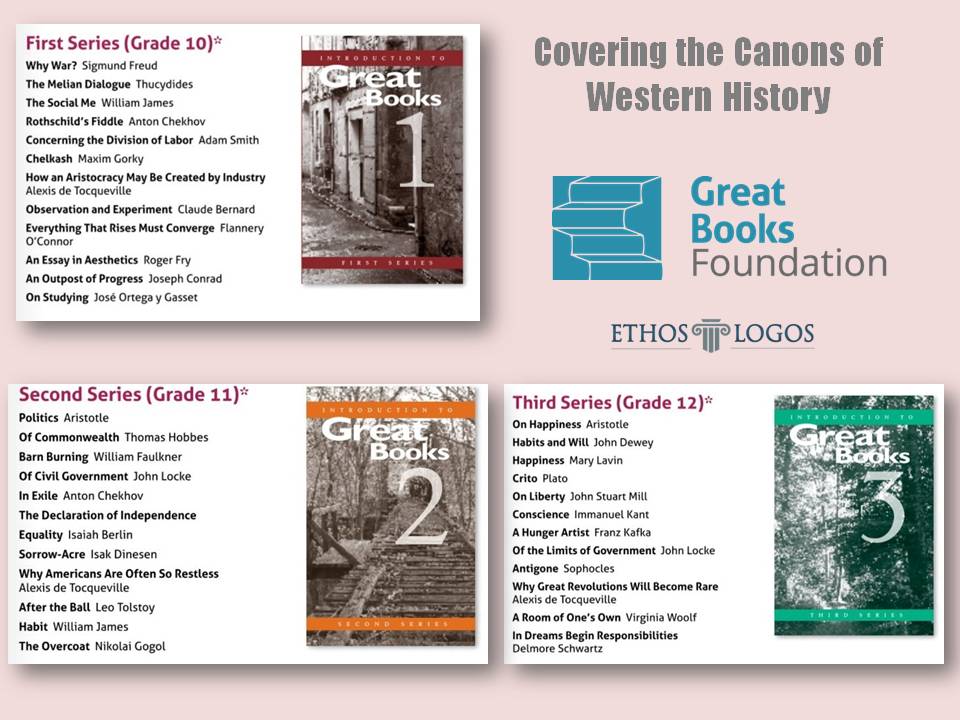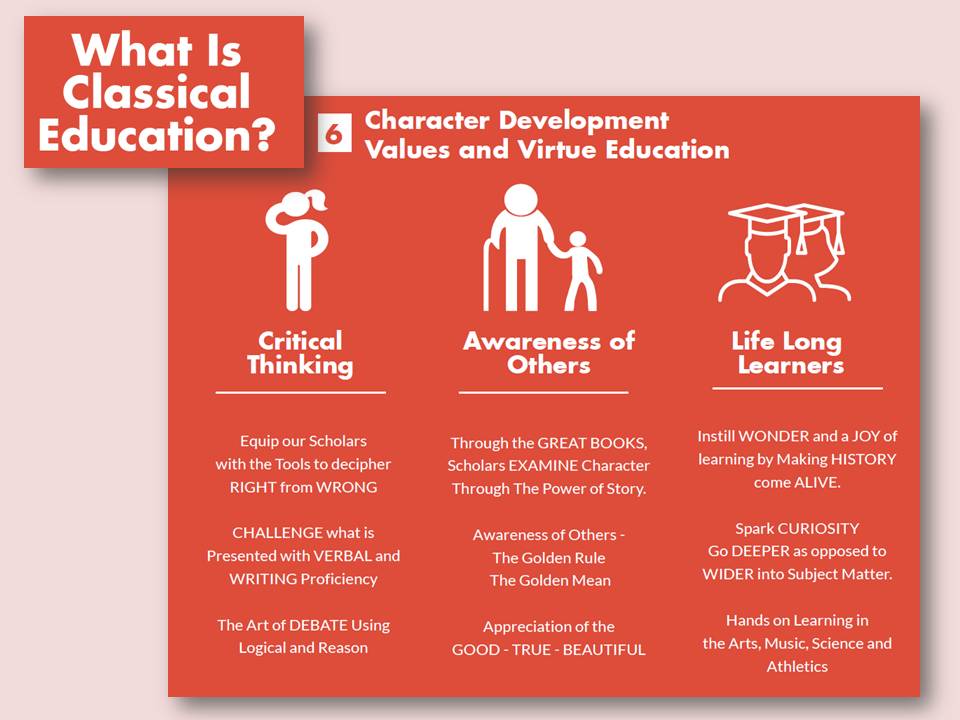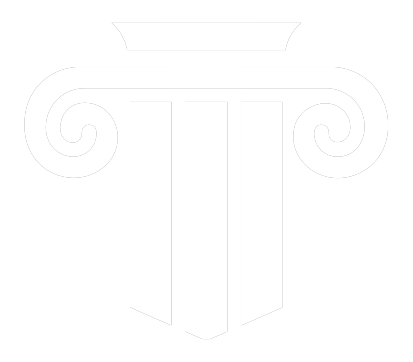Stand Alone Character Program vs. Integrated Into Classical Education
The Ethos Logos Character Program (ELCP) is designed to integrate into the Classical Education school model seamlessly. The ELCP program can function as a standalone character program with some intentional linking to the educational model which the school currently employs and a focused effort to professionally develop the teachers and site administration. The aim of the ELCP is to cultivate a virtuous person with an awareness of others and an understanding of what is good, true and beautiful.
Language-Based curriculum delivered through a strong literature-based curriculum
By using the Great Books as the foundation, the Ethos Pathos Character Program expands scholar learning through the power of time tested moral stories. Societies have used the power of story to teach the next generation right from wrong for over 5,000 years. The expansion of vocabulary and the ability to internalize these deep rich stories into everyday life are the foundation of the ELCP program.
The Ethos Logos ELA framework covers full-length classical novels and source documents for informational text. These are the framework for ELA standards and Values and Virtues education.
- High-quality literature, literary nonfiction, and content-rich informational texts
- Essential questions that help develop critical thinking skills
- Overview of close reading and the Shared Inquiry discussion approach
- Strategies for initial reading, second reading, and close reading
- Discussion questions for key selections
- Planning guides and thinking skills instruction

Content and School-Wide Process
As part of the ELCP program, scholars spend intentional time with a featured value/virtue each month which is programmed into the scope and sequence of the curriculum. The in-depth analysis includes school-wide exercises and a classroom discussion on the focus value/virtue. Scholars walk through what the value/virtue means, what the alternatives are and how their actions affect the scholars around them.
When we speak of schools in America, we immediately understand the role of a teacher preparing students for the big test, the next year of schooling -- but there is so much more to preparing children for the future. To cultivate a student’s character it becomes clear that we must focus on every aspect of a student’s experience on campus. From the way the staff communicates with the students, the dress code, the paint, and posters on the wall, the activities during recess, the way technology is integrated, the school assemblies and the way students transfer orderly through the hallways all reflect on what is important. The school leadership must focus on academic standards and social-emotional learning in conjunction in order to prepare their students for the world. Everything the school does teach something. Everything the school does is educational. All decisions, policies, curriculum and all details of the school’s life should constantly be reviewed through the lens of teachable moments.

The Medici Digital Curriculum
The Medici Digital Curriculum delivery program has four modules that help a school function to its highest capacity. The Medici Family in Florence, Italy used their wealth and influence to underwrite the great artists of the day. Leonardo da Vinci lived and studied with the Medici family and Galileo was one of their tutors. Their wealth and prominence of the day rivaled that of Bill Gates today. Their support of artists ushered in the Renaissance and a new way of thinking about creativity. Their efforts helped the world see the importance of a society that cherished the Good, True and Beautiful and made life richer and more fulfilling. The Medici Digital Curriculum project looks to support artists (teachers and educators of all types) with the tools to perfect their craft.

There are three stand-alone modules built into Medici Digital Curriculum. They are designed to stand alone or for maximum effectiveness, the combination of curriculum, character education lessons and the step by step training and implementation system provides research-backed results for your school.
The three stand-alone modules include:
Standards-aligned and scaffolded literature from Pre-K to 12th Grade.
Every subject and every lesson aligned to the thematic, year-long deep dives into history. The historic foundations, coupled with the age-appropriate great works of literature, art, and music, give teachers a platform to pull from for customization or off the shelf lesson plans.
Character education with stand-alone lessons
ELA or History Lessons built around a series of 20 Values and Virtues that are covered in the classroom and on the campus as a whole. For schools that use the curriculum and the character modules, the seamless hand-off between academic and character formation is the most effective.
Teacher training and Professional Development Module
We have over 80 classes built-out that focus on the basics of teaching and move on to the more nuanced aspects of teaching Classically. From basics like classroom management, student engagement and planning to more specialized courses like The Power of Narration and Socratic Lessons for higher-level verbal and written skills, the training modules ensure consistency and help develop strong teaching. One of the first things we tell our new teachers is to slow down and have the big discussions about characters, times in history and the moral dilemmas that faced generation after generation. We help teachers make connections.

